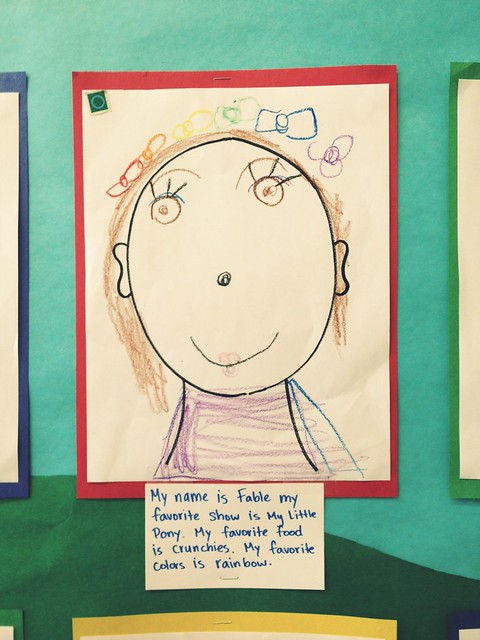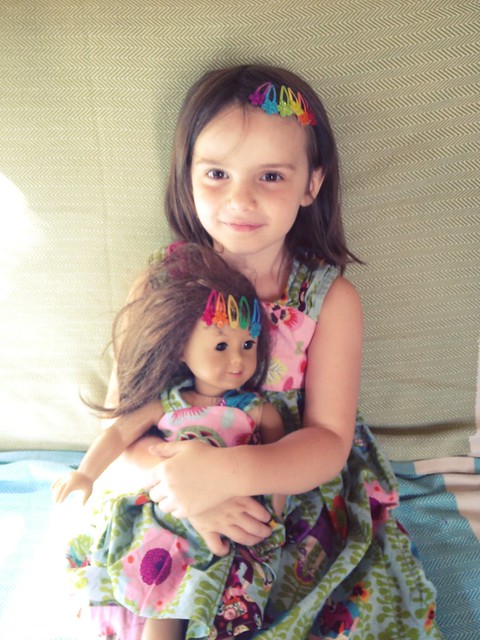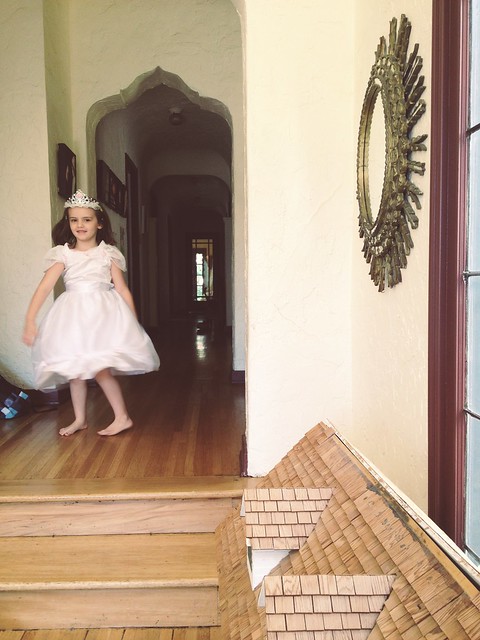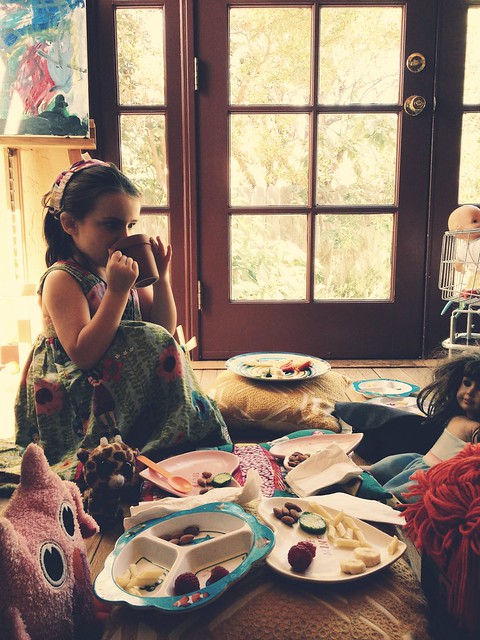And I realized as I looked over Fable's answers that the only question that said anything about her true self was the question she didn't properly answer.
And everything suddenly made sense.
And then didn't make any sense at all.
Our young children are inventing worlds out of egg cartons and making dresses for their dolls out of rubber bands and we're asking them mindless the-opposite-of-thought-provoking questions so that they may answer them and represent themselves with words like "pink" and "ice cream."
Wouldn't it be amazing if the questions we asked our children were inspired? Complex? Or at the very least, interesting?
Our children are alive with creativity. Their imaginations are full of treasures -- their hearts are wide open. Their minds are looking for ways to expand.
And yet... these are the questions we're asking them? What's your favorite food? What's your favorite television show?
Surely such generic questions can't be helpful to a child who is developing his/her own sense of self. Playing favorites with things that have nothing to do with their heads and hearts, their wonderful little free spirits...So then why are we asking our kids such generic (limiting!) questions? Why are we tip-toeing around the creative bits?
I like to think that lines are drawn as much for the purpose of coloring outside of them. That rules are taught with the notion that it's okay to break some of them. Maybe even most of them.
And yet, it's hard to see beyond a row of self-portraits that portray nothing.
***
ED: This article may have nothing to do with what I'm writing about but I just read it after taking a break from writing this post, so I felt it belonged here somewhere. Especially this:
Education is the business of shaping people. It works, however subtly, toward an ideal. At various points, the ideal products of the American school system have been extroverts and right-handed children. (Lefties were believed to show signs of “neurological insult or physical malfunctioning” and had to be broken of their natural tendency.) Individuality has had its moments as well. In the 1930s, for instance, educators made huge efforts to find out what motivated unique students to keep them from dropping out because no jobs existed for them to drop into. Yet here in 2013, even as the United States faces pressure to “win the future,” the American education system has swung in the opposite direction, toward the commodified data-driven ideas promoted by Frederick Winslow Taylor, who at the turn of the century did time-motion studies of laborers carrying bricks to figure out how people worked most efficiently. Borrowing Taylor’s ideas, school was not designed then to foster free thinkers. Nor is it now, thanks to how teacher pay and job security have been tied to student performance on standardized tests. “What we’re teaching today is obedience, conformity, following orders,” says the education historian Diane Ravitch, author of The Death and Life of the Great American School System. “We’re certainly not teaching kids to think outside the box...”
***
Rebel or Robot, kid. What'll it be.
And maybe I'm overreacting. Perhaps these simple questions help children learn to problem solve, make choices, understand their preferences without overwhelming them. Perhaps some people do feel defined by their favorite foods, shows, colors, and who am I to judge that?
But there is so much more to our children and to us and to everyone and I am suddenly feeling very protective of all that limitlessness. It's beautiful when it runs off the page and up the wall.
Because while choice can be empowering, asking someone to make a choice based on "close your eyes and pick one" criteria seems pointless and counter-intuitive. Not to mention the fact that playing favorites with food and books and even television shows paves the way for picking favorite friends and thinking it's okay to discard what isn't as glamorous on paper... Who's your favorite person to sit next to at lunch and eat food with? What's your favorite hair color? Eye color? Skin color?
Playing favorites is not what I call an exercise in self-expression.
Besides, I challenge anyone to argue that there is a better color out there than rainbow.
GGC






0 comments:
Post a Comment